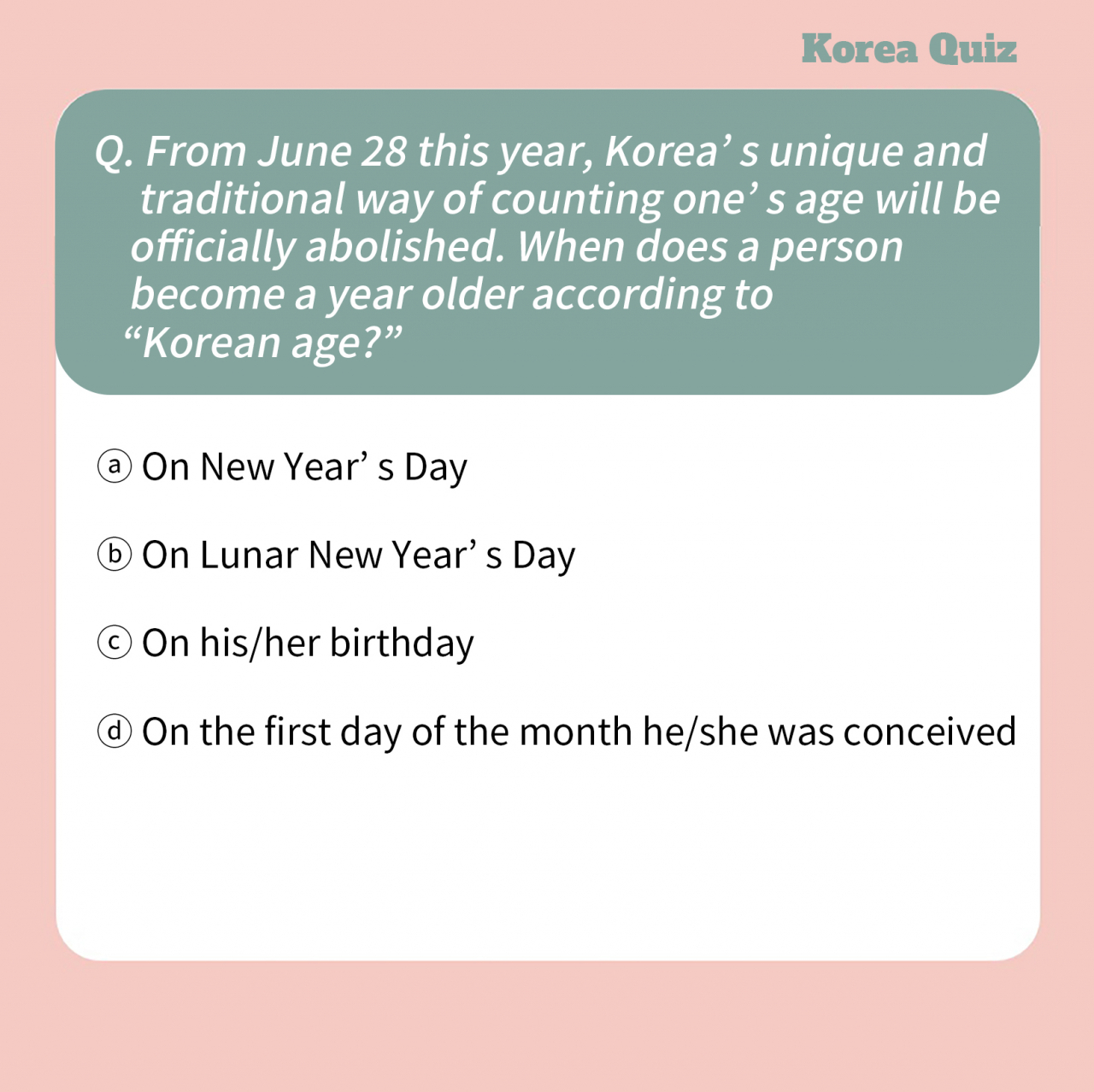Most Popular
Korea Quiz


In Korea, it has traditionally been the case that a person is considered to be one year old when he or she is born, counting the time spent as a fetus in his or her mother’s womb as the first year of life.
A person ages one year at the turn of the calendar year, instead of on his or her birthday.
For instance, if a person is born on Dec. 30, 2023, he or she is a year old. Two days later, on Jan. 1, 2024, they will turn two and then three on the next New Year’s Day -- Jan. 1, 2025. Date of birth doesn’t affect “Korean age.”
Since his campaign days, President Yoon Suk Yeol has vowed to scrap this unique way of counting age in Korea and to shift to a more globally standardized method.
Revisions to the Civil Act and the General Act on Public Administration have since been passed to unify the country’s age counting system. These will go into effect on June 28.
Multiple ways of counting age have been used in Korea so far, including Korean age, international age and another system where a person is zero years old at birth but ages a year on the first day of each new year.
The use of different systems often caused confusion in the interpretation of age in the government’s welfare, medical and administrative services as well as for labor, vaccination policies and insurance contracts, incurring unnecessary social costs.
Answer: a)
-
Articles by Korea Herald




![[Weekender] Pet food makers bet big on ‘recession-free’ pet food market](http://res.heraldm.com/phpwas/restmb_idxmake.php?idx=644&simg=/content/image/2024/05/10/20240510050754_0.jpg&u=20240512145510)

![[Drama Tour] Romantic trip to ‘Queen of Tears’ filming spots](http://res.heraldm.com/phpwas/restmb_idxmake.php?idx=644&simg=/content/image/2024/05/09/20240509050798_0.jpg&u=20240511190213)

















